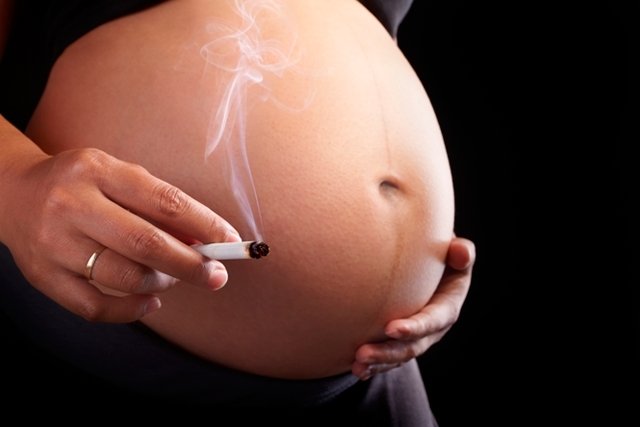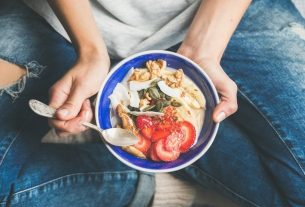Smoking during pregnancy can put the health of the pregnant woman at risk, but it can also harm the baby, so even if it is difficult, you should avoid using cigarettes or reduce this habit, in addition to avoiding spaces where cigarette smoke be very intense.
Cigarette smoke is made up of a complex mixture of dozens of chemicals, considered carcinogenic to humans and capable, in the case of pregnancy, of causing changes to the placenta and maternal-fetal circulation.
Some of the most common consequences that can result from cigarette use during pregnancy are:

1. Miscarriage
The risk of miscarriage in pregnant women who smoke, compared to those who do not smoke, is greater, especially during the first three months of pregnancy. Find out what symptoms may occur during a miscarriage.
Furthermore, the risk of developing an ectopic pregnancy is also higher in women who smoke. Studies indicate that 1 to 5 cigarettes a day are enough for the risk to be 60% higher compared to non-smoking women.
2. Genetic defects
The likelihood of a baby being born with genetic defects is also higher in women who smoke during pregnancy than in those who adopt a healthy lifestyle. This happens because cigarette smoke contains dozens of toxic carcinogenic substances that can cause genetic defects and malformations in the baby.
3. Premature or low birth weight
Cigarette use during pregnancy increases the likelihood of the baby being born with low birth weight or prematurely, which may be due to the reduced vasodilation capacity of the placenta. See how to care for a premature baby.
4. Sudden death
The baby has a greater chance of suffering sudden death in the first three months after birth if the mother smoked during pregnancy.
5. Allergies and respiratory infections
The baby is more likely to develop allergies and respiratory infections after birth if the mother smoked during pregnancy.
6. Displacement of the placenta
Placental abruption and early water rupture happen more frequently in mothers who smoke. This happens because there is a vasoconstrictor effect caused by nicotine in the uterine and umbilical arteries which, associated with an increase in the concentration of carboxyhemoglobin, leads to hypoxia, causing placental infarction. Find out what to do if the placenta displaces.
7. Pregnancy complications
There is a greater risk of pregnant women developing pregnancy complications, such as thrombosis, which is the formation of clots inside the veins or arteries, which can also form in the placenta, which can cause miscarriage or become loose and accumulate in another organ, such as the lungs. or brain, for example.
Therefore, it is important for pregnant women to avoid using cigarettes or avoiding going to places with a lot of smoke during pregnancy. If a woman is a smoker and wants to get pregnant, a good tip is to reduce her smoking until she stops smoking before getting pregnant. Find out what to do to stop smoking.
Smoking while breastfeeding is also not recommended, because in addition to smoking reducing milk production and the baby gaining less weight, the toxic substances in cigarettes pass into breast milk and the baby, when ingesting them, may have learning difficulties and a greater risk of developing illnesses, such as pneumonia, bronchitis or allergies, for example.

Sign up for our newsletter and stay up to date with exclusive news
that can transform your routine!
Warning: Undefined array key "title" in /home/storelat/public_html/wp-content/plugins/link-whisper-premium/templates/frontend/related-posts.php on line 12
Warning: Undefined array key "title_tag" in /home/storelat/public_html/wp-content/plugins/link-whisper-premium/templates/frontend/related-posts.php on line 13




